Abstract
Drinking was recorded in rats while lever pressing was maintained on a series of percentage reinforcement schedules in which the per cent of 1-min fixed intervals terminating with food was 100, 90, 30, 70, 10, 50, and 100%. Intervals in which a pellet was omitted were terminated by brief light flash and click stimuli that were also correlated with food presentations. Drinking failed to develop in five of six subjects following intervals in which the brief stimuli were presented regardless of percentage reinforcement. Postpellet drinking, which followed intervals terminated with pellet delivery, however, increased in both duration and amount ingested per interval as percentage reinforcement was systematically decreased. The increase in postpellet drinking above that produced by 100% reinforcement was interpreted as an analogue of the positive-contrast effect observed with food-reinforced operants.
Full text
PDF
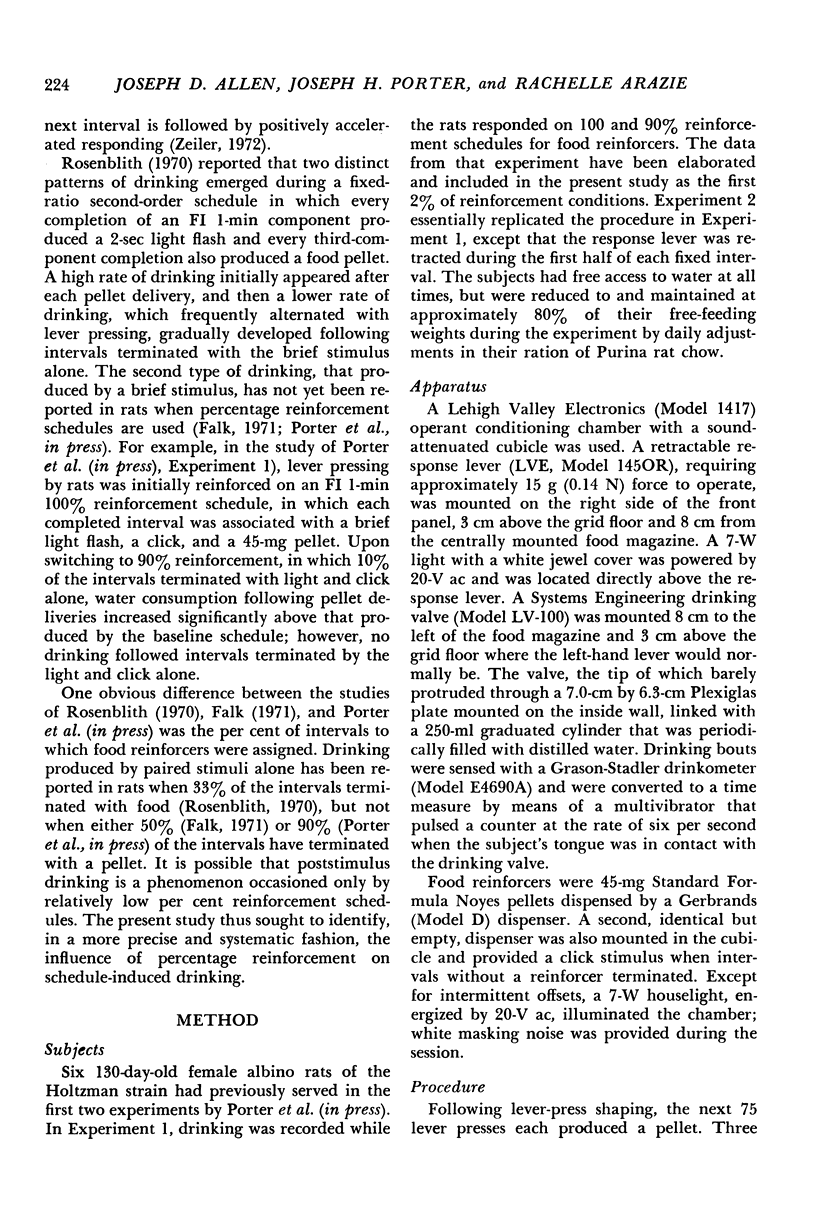
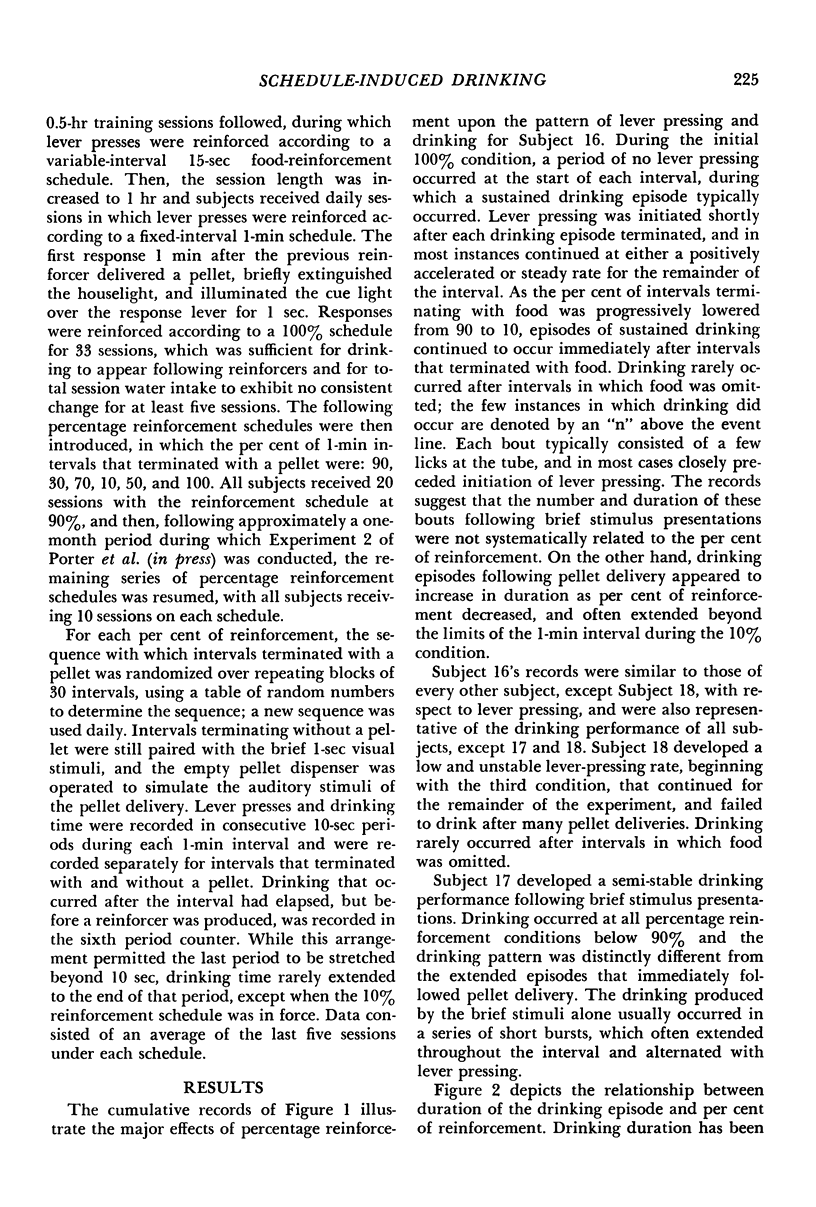
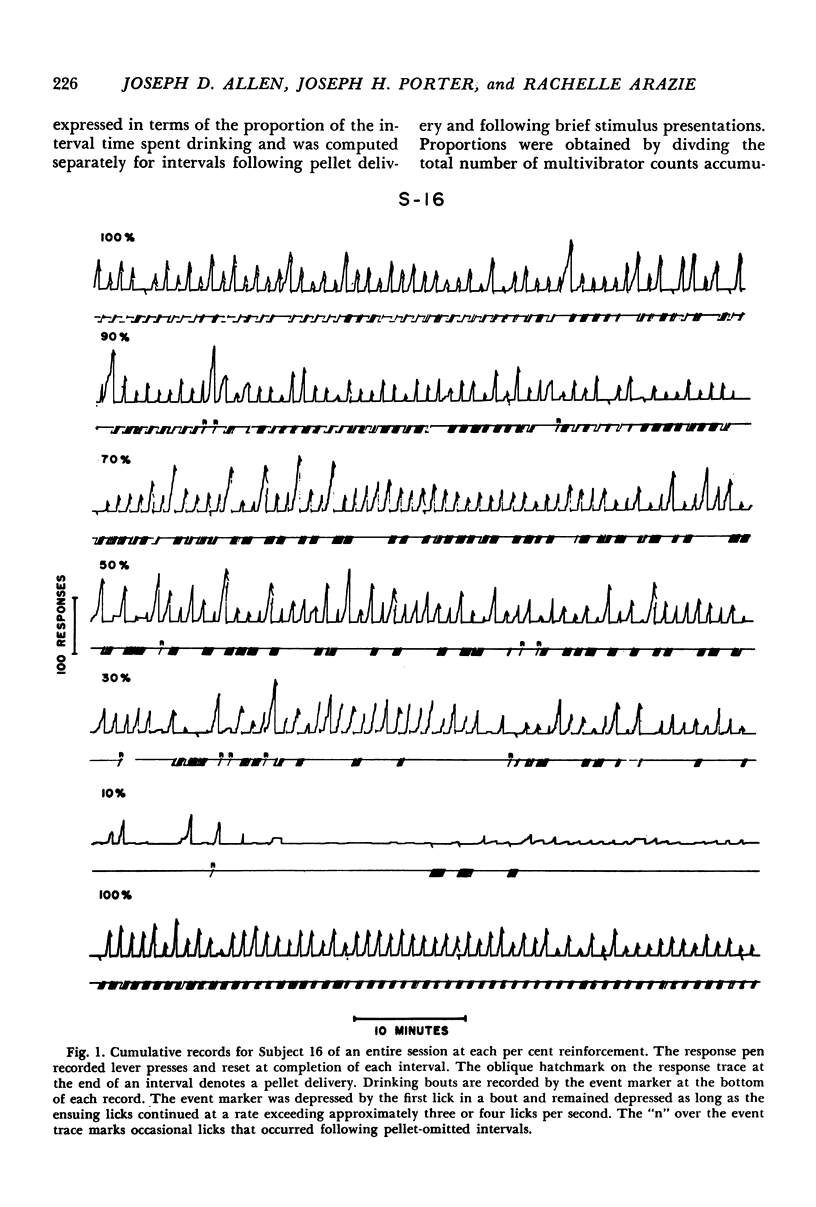
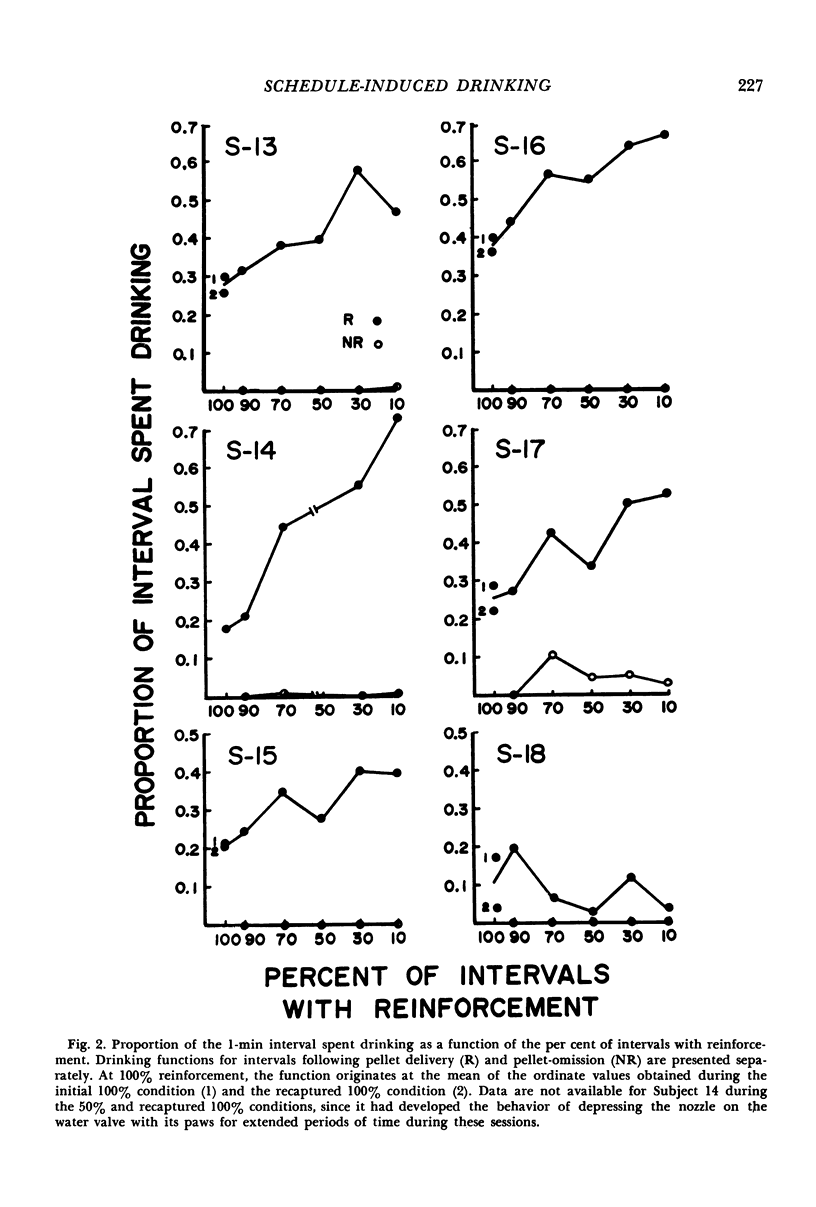
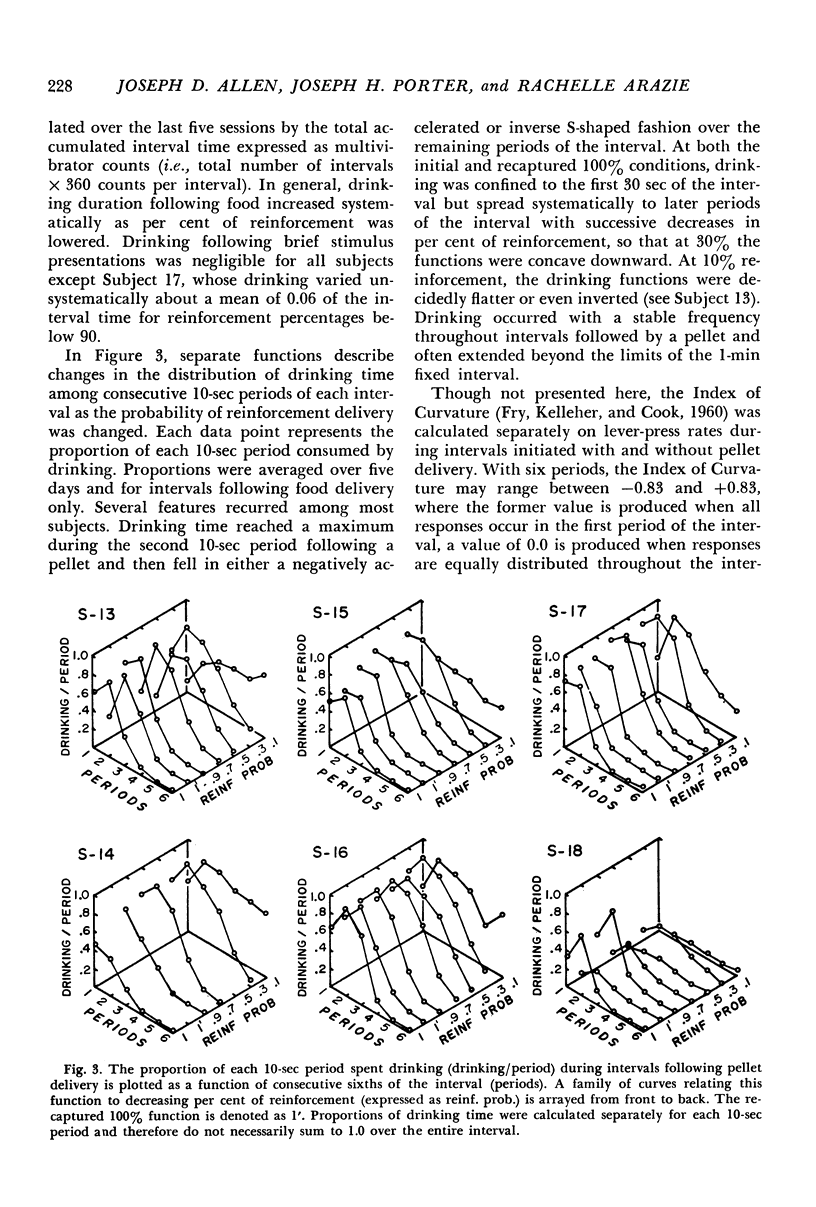
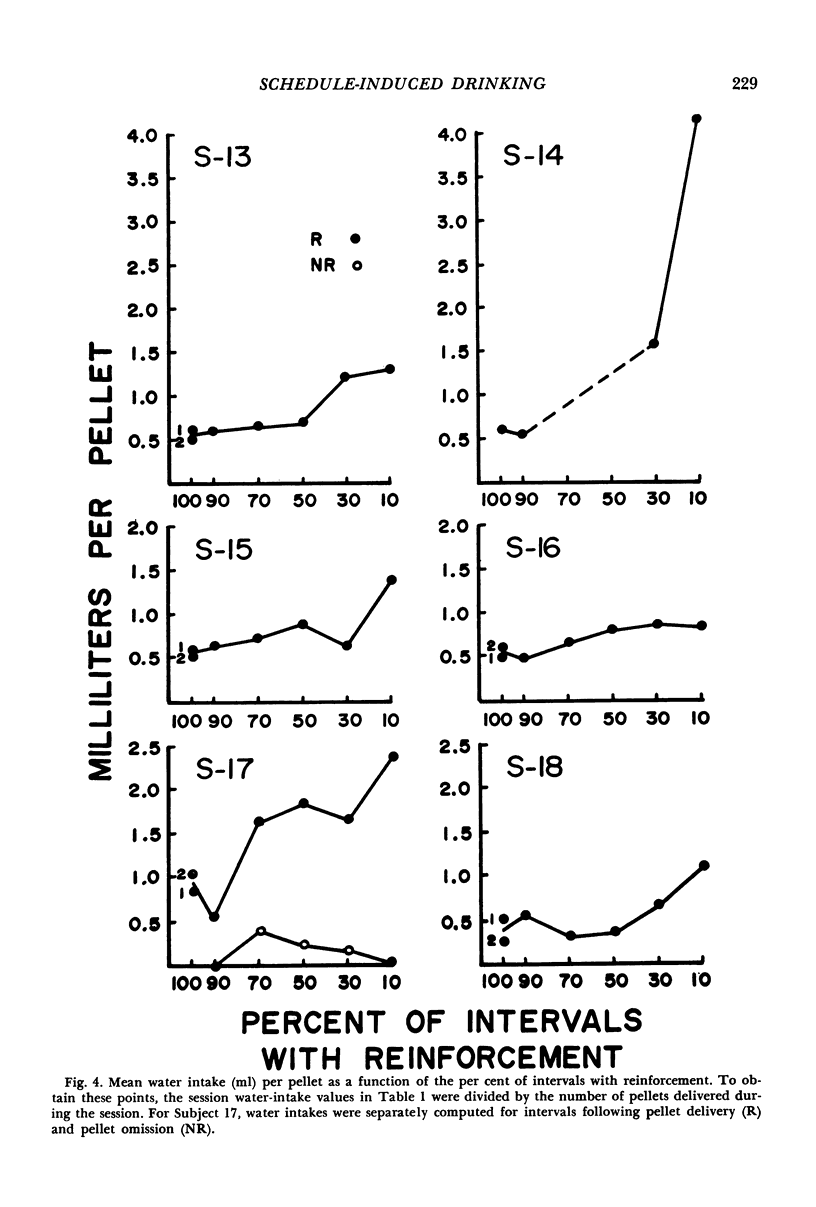
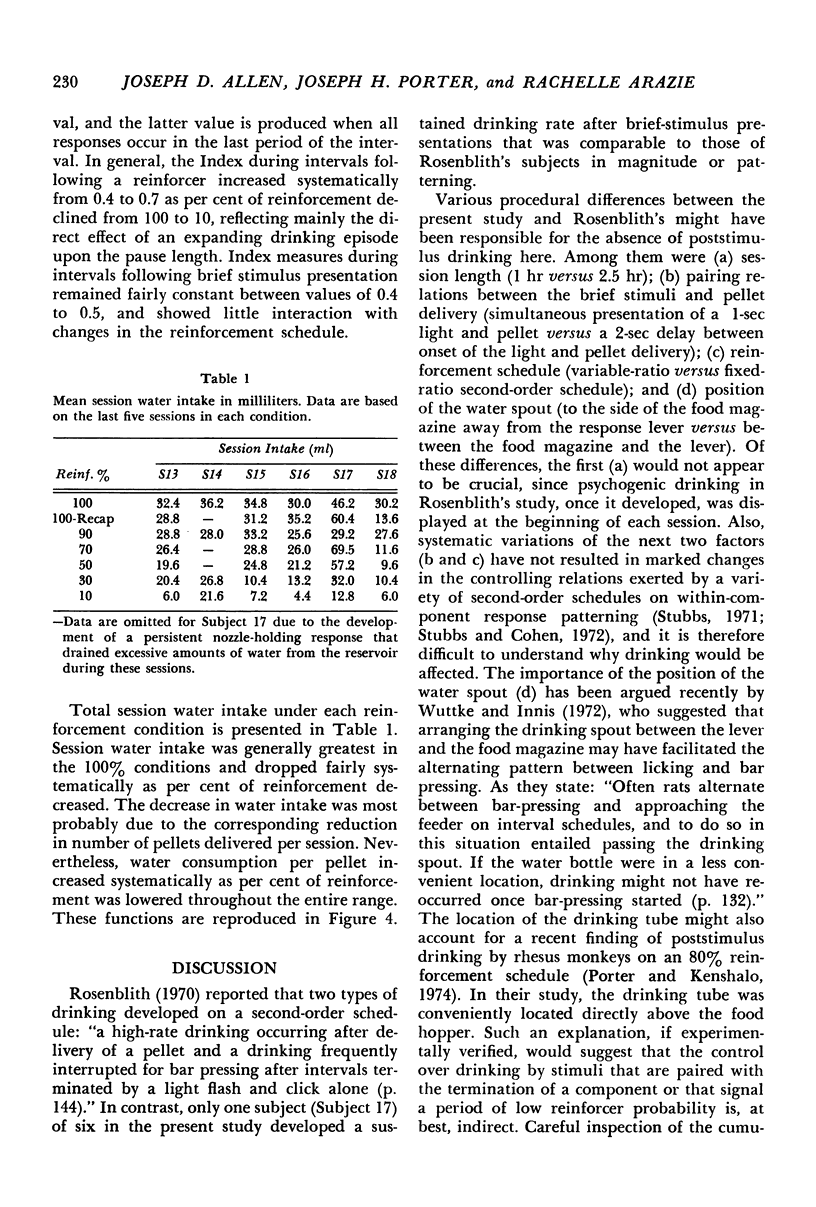
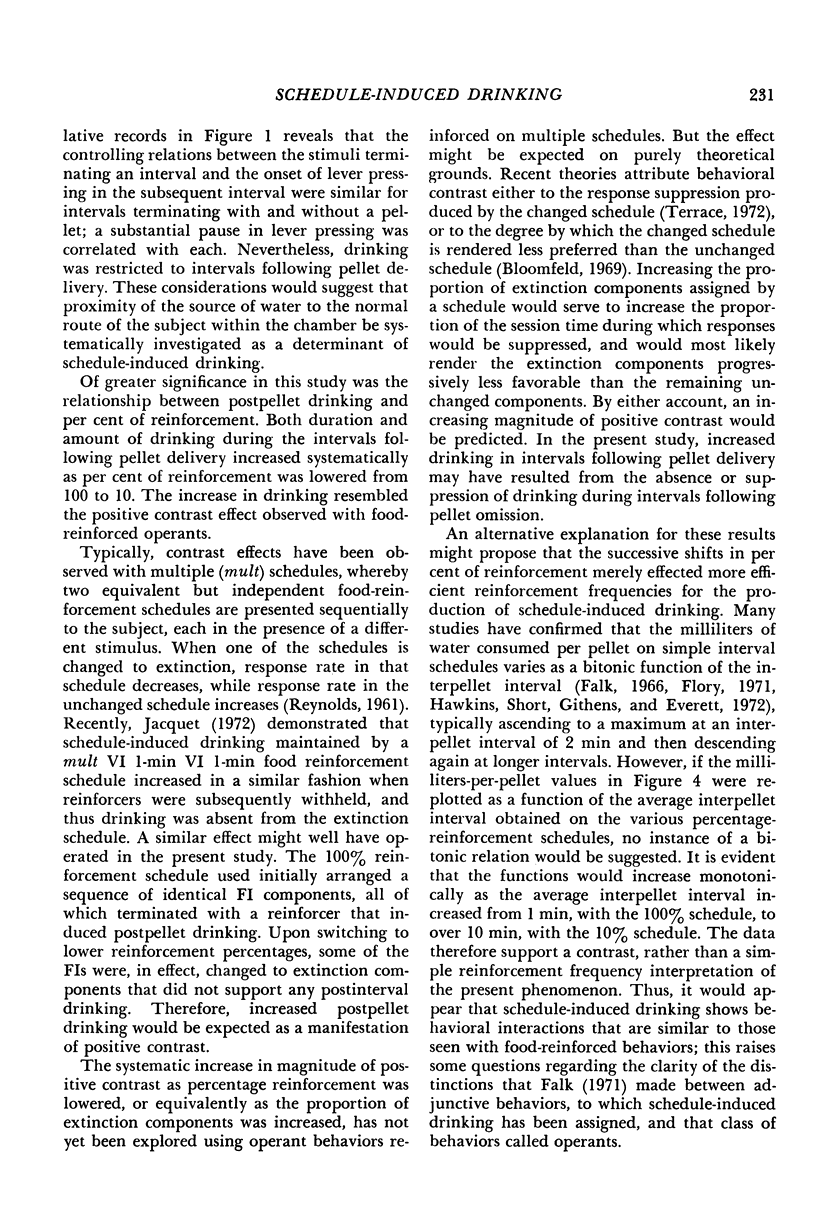
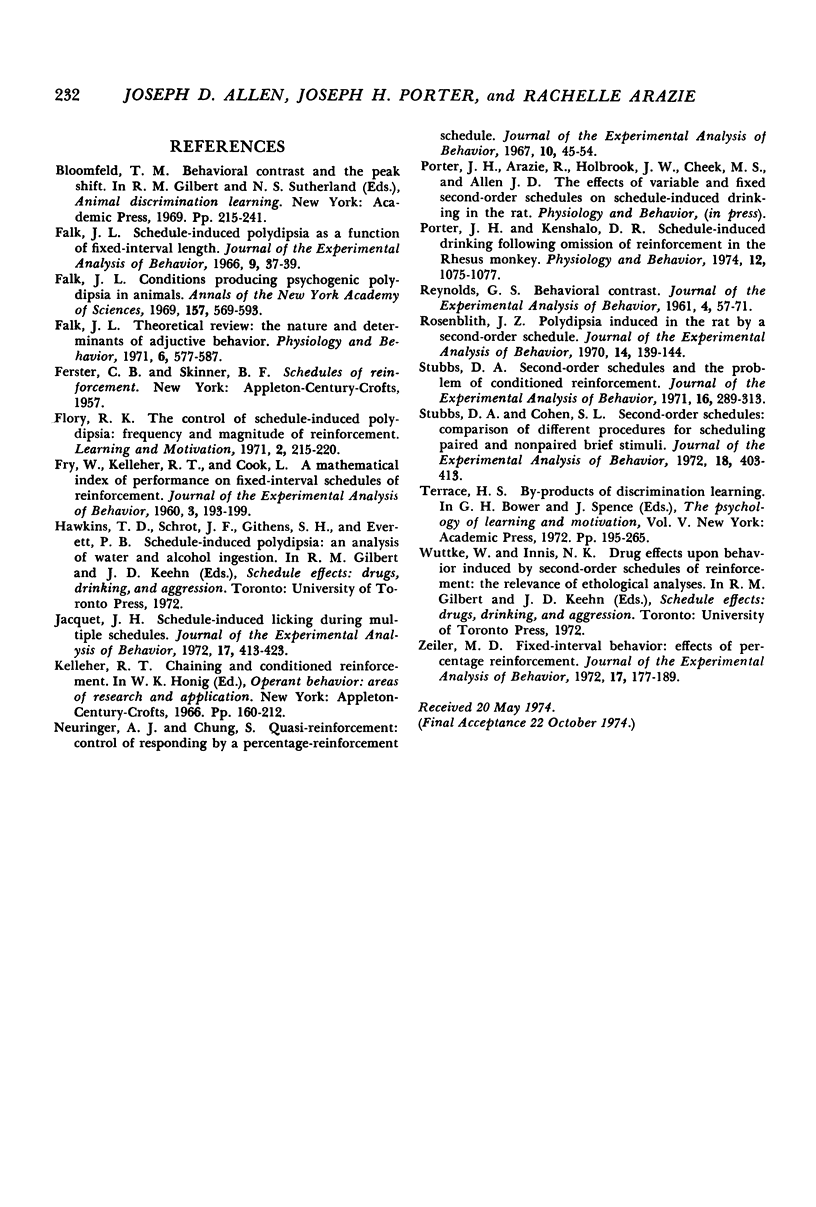
Selected References
These references are in PubMed. This may not be the complete list of references from this article.
- FRY W., KELLEHER R. T., COOK L. A mathematical index of performance on fixed-interval schedules of reinforcement. J Exp Anal Behav. 1960 Jul;3:193–199. doi: 10.1901/jeab.1960.3-193. [DOI] [PMC free article] [PubMed] [Google Scholar]
- Falk J. L. Conditions producing psychogenic polydipsia in animals. Ann N Y Acad Sci. 1969 May 15;157(2):569–593. doi: 10.1111/j.1749-6632.1969.tb12908.x. [DOI] [PubMed] [Google Scholar]
- Falk J. L. Schedule-induced polydipsia as a function of fixed interval length. J Exp Anal Behav. 1966 Jan;9(1):37–39. doi: 10.1901/jeab.1966.9-37. [DOI] [PMC free article] [PubMed] [Google Scholar]
- Falk J. L. The nature and determinants of adjunctive behavior. Physiol Behav. 1971 May;6(5):577–588. doi: 10.1016/0031-9384(71)90209-5. [DOI] [PubMed] [Google Scholar]
- Jacquet Y. F. Schedule-induced licking during multiple schedules. J Exp Anal Behav. 1972 May;17(3):413–423. doi: 10.1901/jeab.1972.17-413. [DOI] [PMC free article] [PubMed] [Google Scholar]
- Neuringer A. J., Chung S. H. Quasi-reinforcement: control of responding by a percentage-reinforcement schedule. J Exp Anal Behav. 1967 Jan;10(1):45–54. doi: 10.1901/jeab.1967.10-45. [DOI] [PMC free article] [PubMed] [Google Scholar]
- Porter J. H., Kenshalo D. R., Jr Schedule-induced drinking following omission of reinforcement in the rhesus monkey. Physiol Behav. 1974 Jun;12(6):1075–1077. doi: 10.1016/0031-9384(74)90158-9. [DOI] [PubMed] [Google Scholar]
- REYNOLDS G. S. Behavioral contrast. J Exp Anal Behav. 1961 Jan;4:57–71. doi: 10.1901/jeab.1961.4-57. [DOI] [PMC free article] [PubMed] [Google Scholar]
- Rosenblith J. Z. Polydipsia induced in the rat by a second-order schedule. J Exp Anal Behav. 1970 Sep;14(2):139–144. doi: 10.1901/jeab.1970.14-139. [DOI] [PMC free article] [PubMed] [Google Scholar]
- Stubbs D. A., Cohen S. L. Second-order schedules: comparison of different procedures for scheduling paired and nonpaired brief stimuli. J Exp Anal Behav. 1972 Nov;18(3):403–413. doi: 10.1901/jeab.1972.18-403. [DOI] [PMC free article] [PubMed] [Google Scholar]
- Stubbs D. A. Second-order schedules and the problem of conditioned reinforcement. J Exp Anal Behav. 1971 Nov;16(3):289–313. doi: 10.1901/jeab.1971.16-289. [DOI] [PMC free article] [PubMed] [Google Scholar]
- Zeiler M. D. Fixed-interval behavior: effects of percentage reinforcement. J Exp Anal Behav. 1972 Mar;17(2):177–189. doi: 10.1901/jeab.1972.17-177. [DOI] [PMC free article] [PubMed] [Google Scholar]


